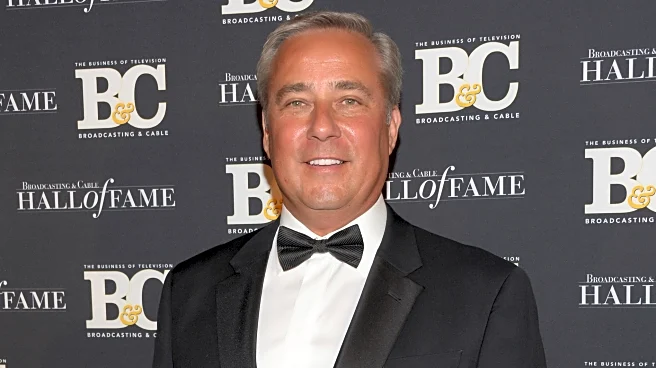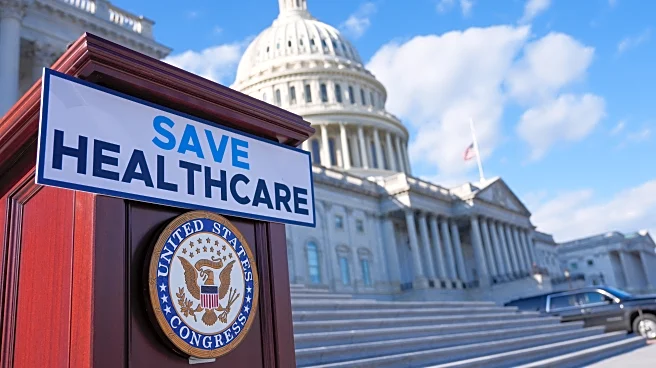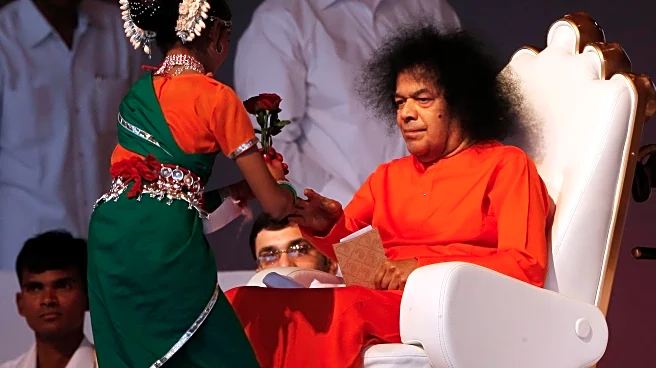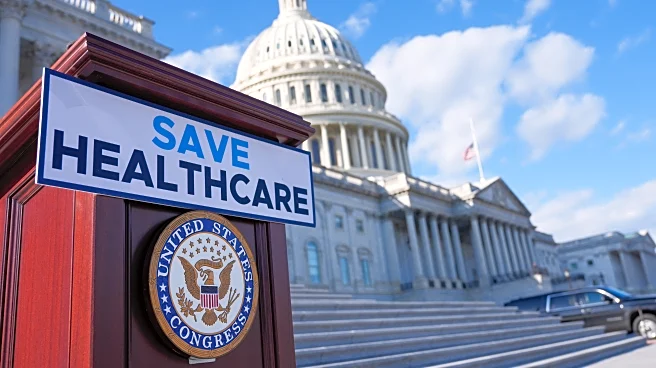What's Happening?
The Apple TV+ series 'Palm Royale' has returned for its second season, featuring heightened stakes for its characters in West Palm Beach high society. Showrunner Abe Sylvia has revealed that the season builds on the strong foundation of the first, with
characters knowing their roles better. The season premiere sees protagonist Maxine, played by Kristen Wiig, in a mental institution following a public breakdown. The show continues to explore themes of ambition and societal challenges, with real-life inspirations influencing character arcs. Notably, the season includes a guest appearance by Patti LuPone, adding to the show's dynamic cast.
Why It's Important?
The return of 'Palm Royale' highlights the ongoing interest in narratives that blend comedy with social commentary. The series, set in 1969, draws parallels to contemporary issues, such as women's rights and political dynamics, reflecting ongoing societal challenges. The inclusion of real-life events and figures in the storyline underscores the show's relevance and ability to engage viewers with historical and current themes. The presence of high-profile actors like Patti LuPone and Carol Burnett adds star power, potentially attracting a wider audience and enhancing the show's cultural impact.
What's Next?
As 'Palm Royale' continues its second season, viewers can expect further exploration of the characters' struggles and ambitions. The show is set to release new episodes weekly, maintaining audience engagement through January 2026. The narrative's focus on women's challenges and societal dynamics may provoke discussions on these topics, potentially influencing public discourse. The show's ability to incorporate real-world events into its plot suggests that future episodes may continue to reflect and comment on current societal issues.
Beyond the Headlines
The series' portrayal of women's struggles in a male-dominated society offers a lens into historical and ongoing gender dynamics. The show's setting in 1969 allows for a reflection on how far society has come, while also highlighting areas where progress is still needed. The use of satire and humor to address serious themes may encourage viewers to consider these issues more deeply, potentially fostering greater awareness and dialogue.















